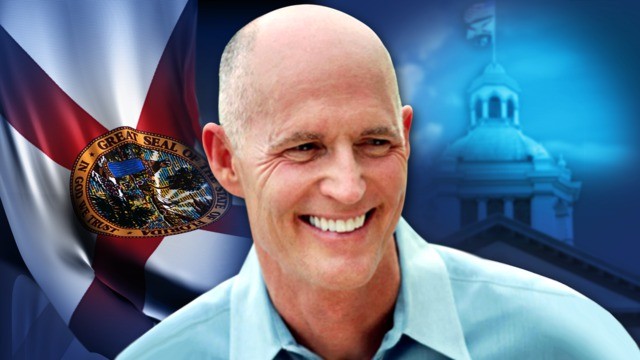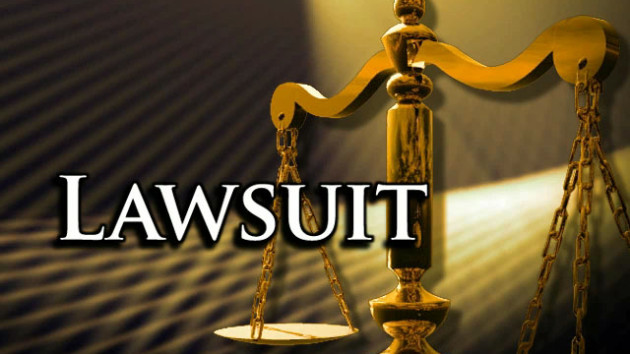FL Small Business Owner sues Governor Scott & AG Bondi for $18 million

This is Part I of a series of investigative reports we are publishing on the Florida Department of Revenue (FLDOR), the mandated unemployment business tax and a lawsuit by Florida small businessman Don Baldauf. We will examine the potential impact of this lawsuit on taxation and regulation in the sunshine state.
Governor Rick Scott at his first inaugural address stated that the axis of unemployment are taxation, regulation and litigation. Governor Scott has traveled the state to promote his pro-growth and pro-small business agenda. Governor Scott said, “Job creation is an absolute mission.”
So why are Florida Governor Rick Scott, Attorney General Pam Bondi, 12th Circuit Court Judge K. Douglass Henderson and twenty-three others defendants named in an $18 million lawsuit brought by Don Baldauf a small business owner?
Baldauf states, “I am suing because I have been deprived of my US Constitution Seventh Amendment rights as a Florida small businessman. Each and every one named as defendants is accused of taking part in preventing me from settling this taxation controversy with the State of Florida by invoking my right to a jury trial. What reason was I given for not being able to exercise my right to a trial by jury? Because King George III says I do not have that right. Yep, according to some of the plaintiffs 1776 never happened!” Baldauf started a website titled JuryTrialRights.com where interested individuals may view the lawsuit and related documents.
The Seventh Amendment states:
In Suits at common law, where the value in controversy shall exceed twenty dollars, the right of trial by jury shall be preserved, and no fact tried by a jury, shall be otherwise re-examined in any Court of the United States, than according to the rules of the common law.
Background:
Florida has no state income tax, yet all Florida businesses, including sole proprietorships, must file a quarterly income tax return and pay unemployment taxes to the FLDOR.
According to the Florida Department of Revenue website, “Corporations and artificial entities that conduct business, or earn or receive income in Florida, including out-of-state corporations, must file a Florida corporate income tax return unless exempt. They must file a return, even if no tax is due. Sole proprietorships, individuals, estates of decedents, and testamentary trusts are exempted and do not have to file a return.”
Baldauf is the sole proprietor of Epitome Systems, a certified alarm system contractor and Florida “S” corporation. Baldauf was licensed in 2004 and Epitome Systems is headquartered in Bradenton, FL. According to the Digital Media Law Project website on sole proprietorship in Florida, “If you have four or more employees in Florida, you must carry workers’ compensation insurance.” But all Florida business regardless of the number of employees must pay Florida unemployment insurance.
Baldauf is mandated by the FLDOR to pay unemployment taxes, for which Florida is the only provider. Additionally, should Baldauf close Epitome Systems he cannot collect unemployment insurance until he finds a new job or starts another company. According to Baldauf, “As I understand it when Congress expanded unemployment benefits the state had to borrow money from Washington with interest. So when I and all other Florida corporations pay the unemployment tax a portion of that is used to pay the interest on the loan that Florida has with the federal government.”
Jim Stratton in his July 2012 Orlando Sentinel column “Florida owes federal government $700 million for jobless benefits” wrote, “Florida businesses owe the federal government almost $700 million borrowed to make unemployment payments during the past three years. Each year the balance remains unpaid, the amount employers pay on their federal unemployment tax increases slightly. They are already paying 0.6 of a percentage point more per employee than before the recession.”
Medical Office Resources of Florida reported:
“The Governor of Florida has signed the legislative bill [in 2012] which changes the Florida state unemployment tax paid by Florida employers to an $8,000 taxable wage base and rates now range from 1.51% to 5.40%. The new company rate will remain at 2.70%.
The good news is that the proposed taxable wage base per employee is $8,000; $500 less than the 2012 proposed limit. This is still a $1,000 increase per taxable wage base per employee from last year.
Additional good news is that the tax rates range from 5.40% to 1.51%. The proposed lowest rate for 2012 was 2.02%, but it has been decreased to 1.51%. The 2011 highest rate of 5.4% remains the same, but the lowest rate is now 1.51%. However, this will adversely impact your tax amount if your current rate is less.”
In 1992 the Florida legislature passed a Taxpayers Bill of Rights, which states, “The Department of Revenue is responsible for administering the tax laws of Florida in a fair and efficient manner. Promoting voluntary compliance, which ensures that all taxpayers pay their applicable taxes, is an important part of the Department’s mission. The Department also has an obligation to monitor compliance and to take action when taxpayers fail to comply with relevant tax laws. The provisions in the Taxpayer’s Bill of Rights protect taxpayers’ privacy and assets during any actions taken by the Department of Revenue.”
Baldauf has been through a series of administrative processes, telephone conversations, exchanges of documents with the FLDOR and a 12th Circuit Court hearing since April of 2011 to try to settle his case. All to no avail.
Part II of our investigative report will look at the fairness and efficiency of the administrative process to address Baldauf’s original complaint. WDW – FL in Part III will look at how the FLDOR took action against Baldauf, the taxpayer who refused to comply with relevant tax laws. Part IV will look at the potential impact on Florida businesses should Baldauf succeed in his lawsuit.
RELATED VIDEO: Governor Rick Scott speaks about unemployment taxes in 2010. Video courtesy of WTSB Channel 10 News, Tampa Bay:



Trackbacks & Pingbacks
[…] will examine the potential impact of this lawsuit on taxation and regulation in the sunshine state. Read Part I and Part II. To read the full text of the Baldauf lawsuit go […]
[…] will examine the potential impact of this lawsuit on taxation and regulation in the sunshine state. Read Part I and Part II. To read the full text of the Baldauf lawsuit go here. Don Baldauf filed a lawsuit […]
[…] Read Part I by clicking here. […]
Comments are closed.